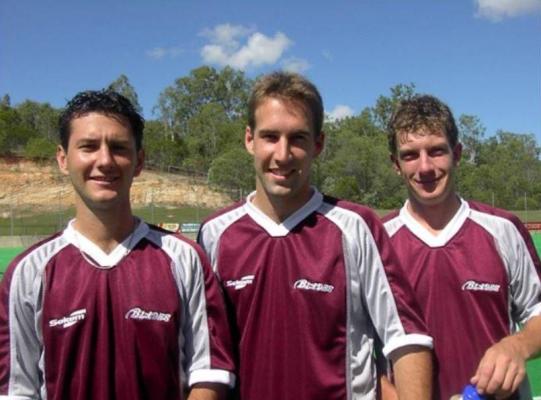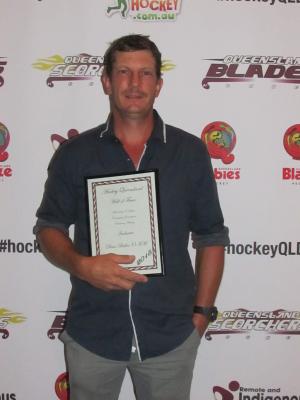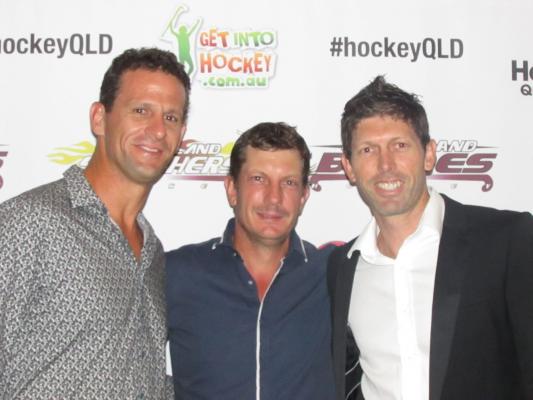By Jess Baker
The memories came flooding back to former Warwick man Dean Butler last week when the Australian men’s hockey team, the Kookaburras, competed for gold at the Tokyo 2020 Olympic Games.
The team fell agonisingly short of the win, losing to Belgium on penalties in the gold medal final match on Thursday 5 August.
Dean said the game was reminiscent of his own team’s performance at the 2004 Games in Athens, where the Kookaburras finally ended Australia’s men’s hockey hoodoo.
“The score was pretty similar the whole way through,” Dean said. “One all, the type of contest it was, and how tough of a game it was.”
Dean’s game was so tough, in fact, that he had to come off the field just before half-time to get stiches in the back of his head. He was off for just 15 minutes.
“We went to extra time and we scored right at the end of the extra time,“ he said.
“(It was a) bit of a shame that their game didn’t get extra time.”
Player Jamie Dwyer scored a goal in the eighth minute of extra time, the Kookaburras beating two-time defending champion the Netherlands 2-1.
Dean said winning gold was “a bit of a weight off the shoulders” after the team had spent the four to six years prior training.
“Just the emotion of training for that long …“ he said.
“Australia had come so close so many times so it was pretty exciting for Australia to win the finals.“
The Kookaburras have not won since.
Dean now resides in Cairns, after leaving Warwick at 18 years old.
He attended Warwick East State School then Warwick State High School, playing hockey from age five until just last year. He has represented Australia more than 200 times.
Highlights of his career include winning a silver medal at the 2006 Men’s Hockey World Cup in Kuala Lumpur, a silver medal at the 2002 World Cup in Molhengladbach, and a gold medal at the 1997 Junior World Cup Milton Keynes.
Dean said he had stayed in touch with his teammates from the 2004 Olympic Games, speaking to a number of them just prior to last week’s Olympic gold final.
The Kookaburras have an impressive track record, finishing no lower than sixth since the first team competed at Melbourne in 1956.
Over the years, they have won five bronze medals, three silver and one gold.









